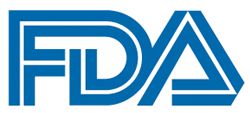A Look Back at FDA News from October 2018
A look back at all the FDA news that happened in the month of October 2018, including several new FDA approvals, priority reviews, a breakthrough therapy designation, and more, in a variety of cancer types.<br />

In October 2018, the FDA approved several oncology agents, including agents for the treatment of multiple myeloma, breast cancer, and nonsmall cell lung cancer (NSCLC). There was also an approval of a vaccine for the prevention of HPV and a next-generation sequencing (NGS) assay to detect minimal residual disease in patients with ALL or multiple myeloma.
Once-Weekly Carfilzomib Regimen Approved by the FDA for Myeloma
Here’s a look back at all the FDA happenings from the month of October 2018:
On October 1, 2018, the FDA approved a once-weekly dosing option of carfilzomib (Kyprolis) in combination with dexamethasone for patients with relapsed/refractory multiple myeloma. This approval was based on results from the phase III ARROW study.
Rucaparib Granted Breakthrough Designation by FDA for mCRPC
The FDA granted a breakthrough therapy designation on October 2 to the combination lenvatinib (Lenvima) and pembrolizumab (Keytruda) for treatment of patients with advanced and/or metastatic nonmicrosatellite instability high/proficient mismatch repair endometrial carcinoma who progressed after at least 1 prior systemic therapy.
FDA Approves NGS Assay to Detect MRD in ALL, Multiple Myeloma
The FDA approved NGS assay clonoSEQ as a test for minimal residual disease in patients with ALL or multiple myeloma. This NGS assay was approved on October 2.
Selinexor Granted Priority Review by FDA for Multiple Myeloma
On October 6, the FDA granted a priority review to selinexor for treatment of patients with penta-refractory multiple myeloma. The application submitted was based on data from the phase IIb STORM trial.
HPV Vaccine Gardasil 9 Receives FDA Approval for Use Up to Age 45
The FDA approved Gardasil 9 (HPV 9-valent Vaccine, Recombinant) for use in males and females from 9 to 45 years old. This vaccine, approved October 7, is used for prevention of HPV and was previously approved in 2014 for males and females from age 9 up to 26.
ODAC Recommends FDA Approval of Rituximab Biosimilar
On October 10, the FDA’s Oncology Drugs Advisory Committee reached a unanimous vote (16-0), recommending approval of the rituximab biosimilar CT-P10 for 3 of the anti-CD20 monoclonal antibody’s non-Hodgkin lymphoma indications.
LOXO-292 Granted FDA's Breakthrough Designation for RET Fusion-Positive Thyroid Cancer
LOXO-292 received a breakthrough therapy designation on October 15, for treatment of patients with advanced RET fusion-positive thyroid cancer requiring systemic therapy, progressed on prior treatment, and have no acceptable alternative treatment options. This decision is based on findings from the ongoing phase I/II IBRETTO-001 trial (NCT03157128).
Talazoparib Receives FDA Approval in BRCA-Mutated, HER2-Negative Breast Cancer
The FDA granted approval to talazoparib (Talzenna) for treatment of patients with deleterious or suspected deleterious germline BRCA-mutated, HER2-negative locally advanced or metastatic breast cancers on October 16. However, to receive this therapy, patients must be selected by the companion diagnostic approved for identifying deleterious or suspected deleterious germline BRCA-mutated disease, the BRCAnalysis CDx test.
Olaparib Granted Orphan Drug Designation by FDA for Pancreatic Cancer
On October 16, the FDA granted an orphan drug designation to olaparib (Lynparza), a PARP inhibitor, for treatment of patients with pancreatic cancer. The drug is currently being evaluated in the phase III POLO trial (NCT02184195).
Ibrutinib and Obinutuzumab Combo Granted Priority Review by FDA For Frontline CLL
A priority review was granted to ibrutinib in combination with obinutuzumab (Gazyva) in the frontline for treatment of adult patients with chronic lymphocytic leukemia or small lymphocytic lymphoma. The FDA will have 6 months to review the data after this designation was granted on October 17, as compared to the standard 10 month review.
FDA Adds 3 Months to Review Period for Nivolumab Plus Ipilimumab for TMB-High NSCLC
On October 22, the FDA added 3 months to the review period for the frontline combination of nivolumab (Opdivo) plus low-dose ipilimumab (Yervoy). This regimen is being reviewed for treatment of patients with advanced NSCLC with tumor mutational burden ≥10 mutations per megabase.
TAS-102 Granted Priority Review by FDA for Gastric/GEJ Cancer
The FDA granted priority review on October 25 to a supplemental new drug application (sNDA) seeking approval for TAS-102 (trifluridine/tipiracil; Lonsurf) for treatment of previously treated patients with advanced or metastatic gastric adenocarcinoma, including cancer of the gastroesophageal junction. This decision is based on results from the phase III TAGS trial.
Ruxolitinib Granted Priority Review by FDA for GVHD
On October 26, the FDA granted priority review to an sNDA for ruxolitinib (Jakafi) for treatment of patients with acute graft-versus-host disease (GVHD) who have had an inadequate response to corticosteroids. Ruxolitinib has previously been granted a breakthrough therapy designation for this setting.










